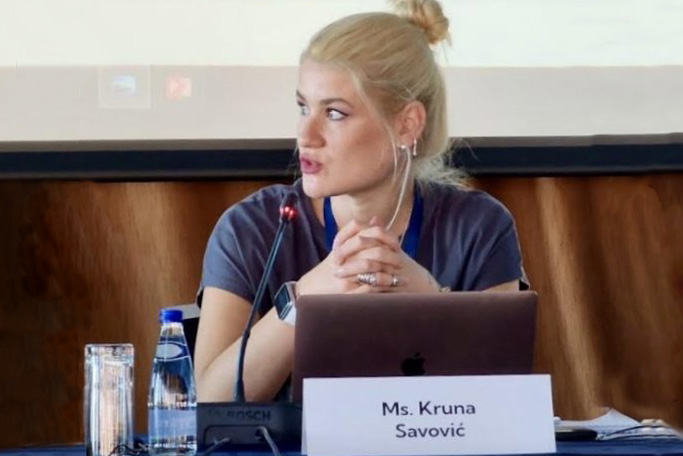
Kruna Savović, Živković Samardžić Technology, Media and Telecommunications Partner and a Head of Media Litigation, led the Živković Samardžić team that has secured a victory for RADIO BROADCASTING COMPANY B92 AD at the European Court of Human Rights.
The case at hand originated in an application against Serbia (no. 67369/16), concerning the TV news broadcast and an online article published in 2011, naming the Assistant Minister of Health at the time, for whom the officers of the Organised Financial Crime Department’s Anti-Corruption Division of the Serbian Criminal Police Directorate, had a reason to suspect, in the pre-trial proceedings regarding the procurement of AH1N1 vaccines in 2009, was involved in the abuses. According to the TV news broadcast and online article published by B92, the name of the Assistant Minister of Health, along with several others, was omitted from the final criminal complaint that was brought against only three persons. Broadcaster based its reporting on a note filed by the officers of the Anti-Corruption Division informing their superiors on the issue.
In 2012, the Assistant Minister of Health instituted proceedings against the broadcaster in the Belgrade High Court, seeking compensation for non-pecuniary damage, publication of the court’s judgment, and removal of the two articles from the broadcaster’s Internet portal. The Assistant Minister submitted, in particular, that it was not true that she had been suspected of abuse of office, or of anything else, nor had she been removed from the alleged list of suspects because of illicit influence. The Belgrade High Court ruled partly in favor of the Assistant Minister and ordered the broadcaster to pay her RSD 200,000 (approximately EUR 1,750) with statutory interest by way of compensation for non-pecuniary damage, and RSD 113,100 (approximately EUR 990) for costs; and to remove one of the articles from its Internet portal. The Belgrade High Court also ordered the editor-in-chief to publish the judgment. The court found that the broadcaster had not used due diligence and so had not discovered the incompleteness of the information in question. Instead, according to the court, the broadcaster had relied on a document that contained operational findings of the police in pre-trial proceedings and as such did not constitute an official document of a relevant State body.
In 2014, the Belgrade Court of Appeal upheld the first-instance judgment and, in substance, endorsed its reasoning. In 2016, the Constitutional Court dismissed the broadcaster’s constitutional appeal.
In its judgment, the European Court of Human Rights, considered that the domestic courts took a rather limited view when characterizing the suggestion that the names disappeared from the list of suspects because of pressure from the Special Prosecutor on the Ministry of the Interior, as a statement of fact as well, and not as a value judgment for which the official internal note have provided factual basis. The European Court of Human Rights confirmed that even though internal official reports can be an important source for journalists, they cannot release them completely from their obligation to base their publications on sufficient research. However, the Court considered that by attempting to obtain the Assistant Minister’s and the Ministry’s version of events and by publishing the response of the Special Prosecutor’s Office, the broadcaster must be considered to have sought to achieve a balance in its reporting and has complied with its duty of diligence in verifying the authenticity and content of the police note. The Court was satisfied that the applicant company acted in good faith and with the diligence expected of a responsible journalist reporting on a matter of public interest.
The Court emphasized that if the national courts apply an overly rigorous approach to the assessment of journalists’ professional conduct, journalists could be unduly deterred from discharging their function of keeping the public informed. The courts must therefore take into account the likely impact of their rulings not only on the individual cases before them but also on the media in general. Their margin of appreciation is thus circumscribed by the interest of a democratic society in enabling the press to play its vital role in imparting information of serious public concern.
Thus, the European Court of Human Rights unanimously declared that there had been a violation of Article 10 of the Convention and held that the respondent state (Serbia) is to pay the broadcaster EUR 2,740 in respect of pecuniary damage, EUR 2,500 in respect of non-pecuniary damage and EUR 2,400 in respect of costs and expenses.
The original judgment in English language is available here.
You can read how Serbian media commented the judgment here and here.The team acting on behalf of B92 in this case, also included our former associate, Jovan Pjevač.